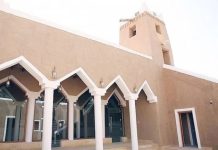DM Monitoring
TEHRAN: Last month, Turkey’s readiness for an operation against the PKK terrorist organization in Sinjar caused a diplomatic crisis on the Ankara-Tehran line. The words of Iran’s ambassador to Baghdad regarding a possible Turkish operation were not accepted or welcomed by Ankara.
Although mutual tensions appear to have cooled for now, Iran-Turkey relations face problems that could resurface with the new geopolitics on the horizon. In general, while the opinions of experts in Ankara point in this direction, there are no opinions from Iranian officials that prove otherwise.
In fact, as Tehran’s current policy portrays, Iran is trying to deny that the PKK, its offshoots and other terrorist groups are the most important security threat not only to Turkey but also to Iraq, Iran and Syria – the entire region. However, there are historical facts and recent statements confirming Iran’s rapprochement with the PKK and its extension groups, though these are not today’s issue.
Last month, an Iraqi official announced that the PKK and Hashd al-Shaabi (Popular Mobilization Forces – PMF) forces, an umbrella group of mostly Iran-backed militias, have been increasing their presence in Sinjar. Sheikh Shamo, who advises the head of the Kurdistan Regional Government (KRG) about Yazidi affairs, said 15,000 members of the Hashd al-Shaabi militia had been deployed in Sinjar.
According to a report by Daily Sabah’s Dilara Aslan dated March 7, another Iran-backed paramilitary group in Iraq, Harakat Hezbollah al-Nujaba, threatened to attack the Turkish military if it continued to carry out counterterrorism operations in northern Iraq two weeks ago. The group, which is designated a terrorist organization by the United States and receives military assistance, training and advice from Iran and part of the Hashd al-Shaabi, warned the Turkish military and the government to revise their plans.
An important panel was held this week by the Center for Iranian Studies (IRAM) where Turkey’s possible Sinjar operation, the historical relations between Iran and the PKK and Shingal (Sinjar) Resistance Units (YBŞ) which consist of PKK militants, and the impact of this on Turkey’s fight against terrorism in the region and Iraq, were discussed.
The president of IRAM, Hakkı Uygur, said that despite Iran and the PKK representing two different ideological fronts, they could take a common position if their shared target was Turkey. “Especially recently, cooperation between the two has increased at the center of the Sinjar operation discussions,” Uygur stated.
Pointing out that the statements by Iran’s ambassador to Baghdad, Iraj Masjedi, targeted Turkey over the Sinjar operation, Uygur noted that Masjedi was a name that came to the fore after Qassem Suleimani, the commander of the Iranian Revolutionary Guard Corps (IGRC) who was killed by the U.S. “The PKK-Iran relationship was a relationship that was no longer hidden after these statements. Turkey did not perceive Masjedi’s statements as diplomatic but rather as an attack on Turkey’s presence in Iraq. The latest statements from Iran indicate that a possible Sinjar operation will not be easy. But as long as the PKK and its extensions continue to be a threat to Turkey in the region, Turkey’s presence there will continue,” Uygur added.
Providing a historical timeline over Iran-PKK relations, IRAM expert Çağatay Balcı said, “Iran and the PKK’s cooperation in the region has increased, especially since 2010.” He added: “They both need each other in the region. At the moment, they both are struggling on the Iraqi line. The weight of the Iranian wing within the organization also increased during this time.” Balcı also noted that Turkey’s possible Sinjar operation could be affected by the elections in Iran, which will be held in June, and said that the determination of the Iraqi central administration, as well as Iranian influence in the country, are also important factors in this matter. “The pragmatic relationship between the PKK and Iran has developed over the past 40 years and their common goal is Turkey in the region.



